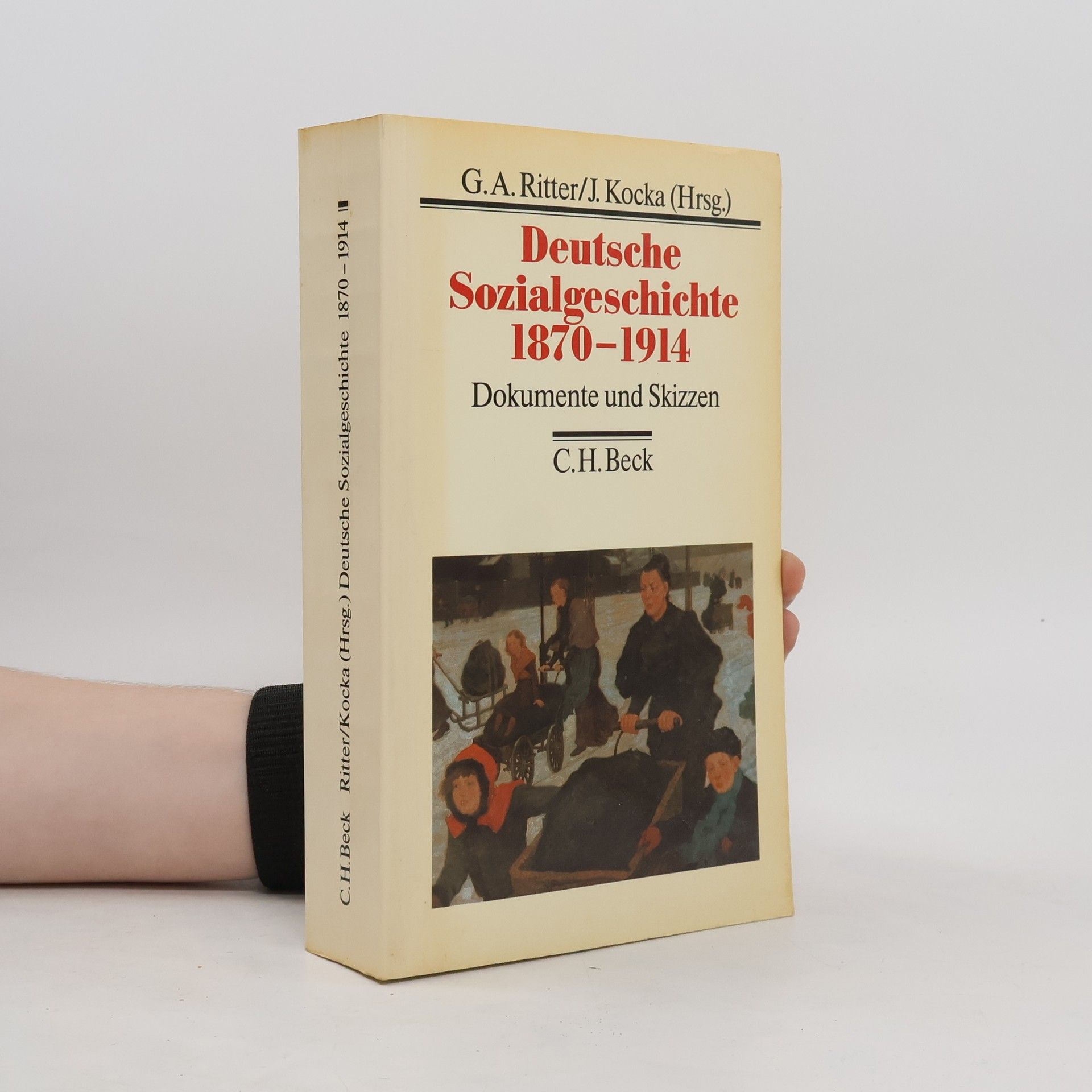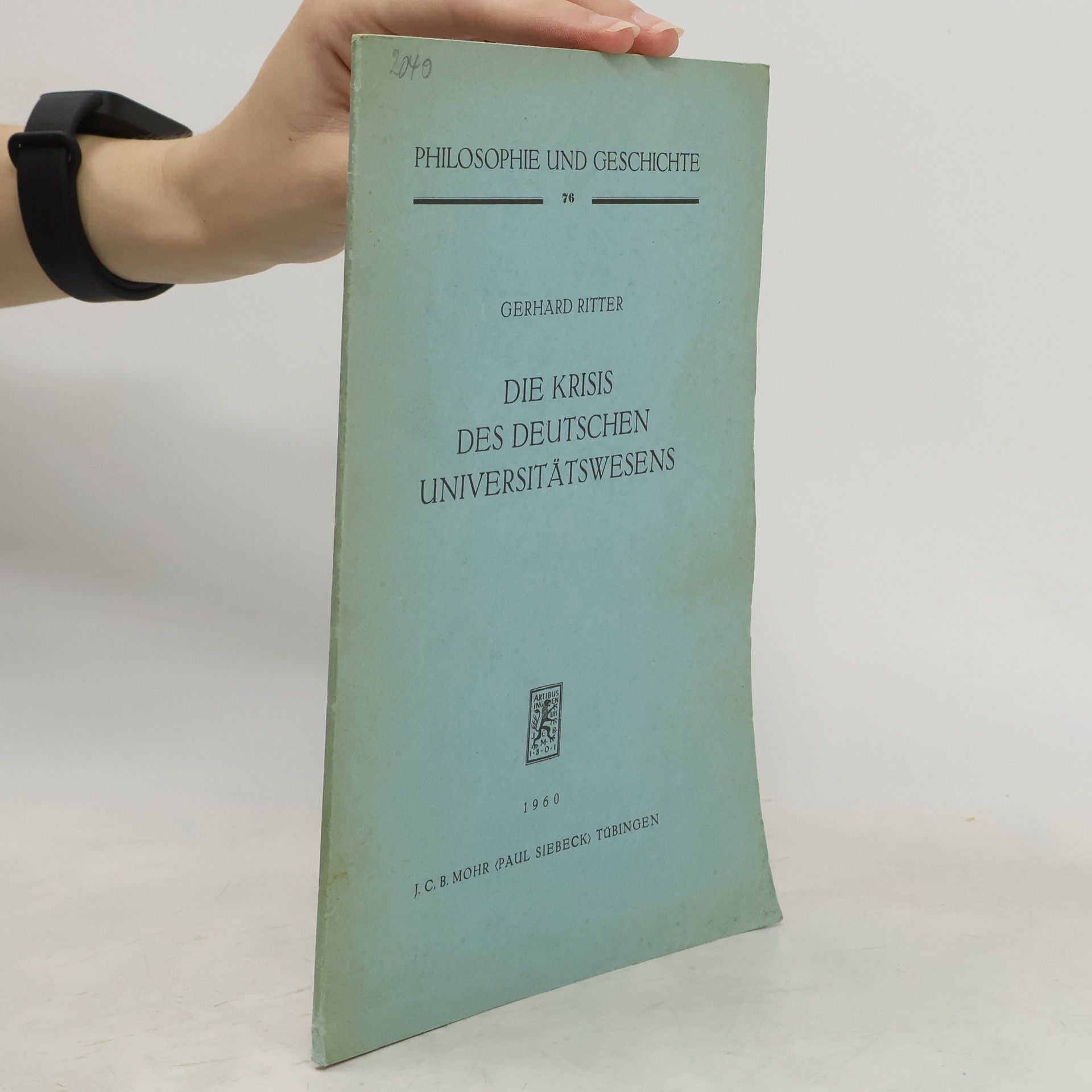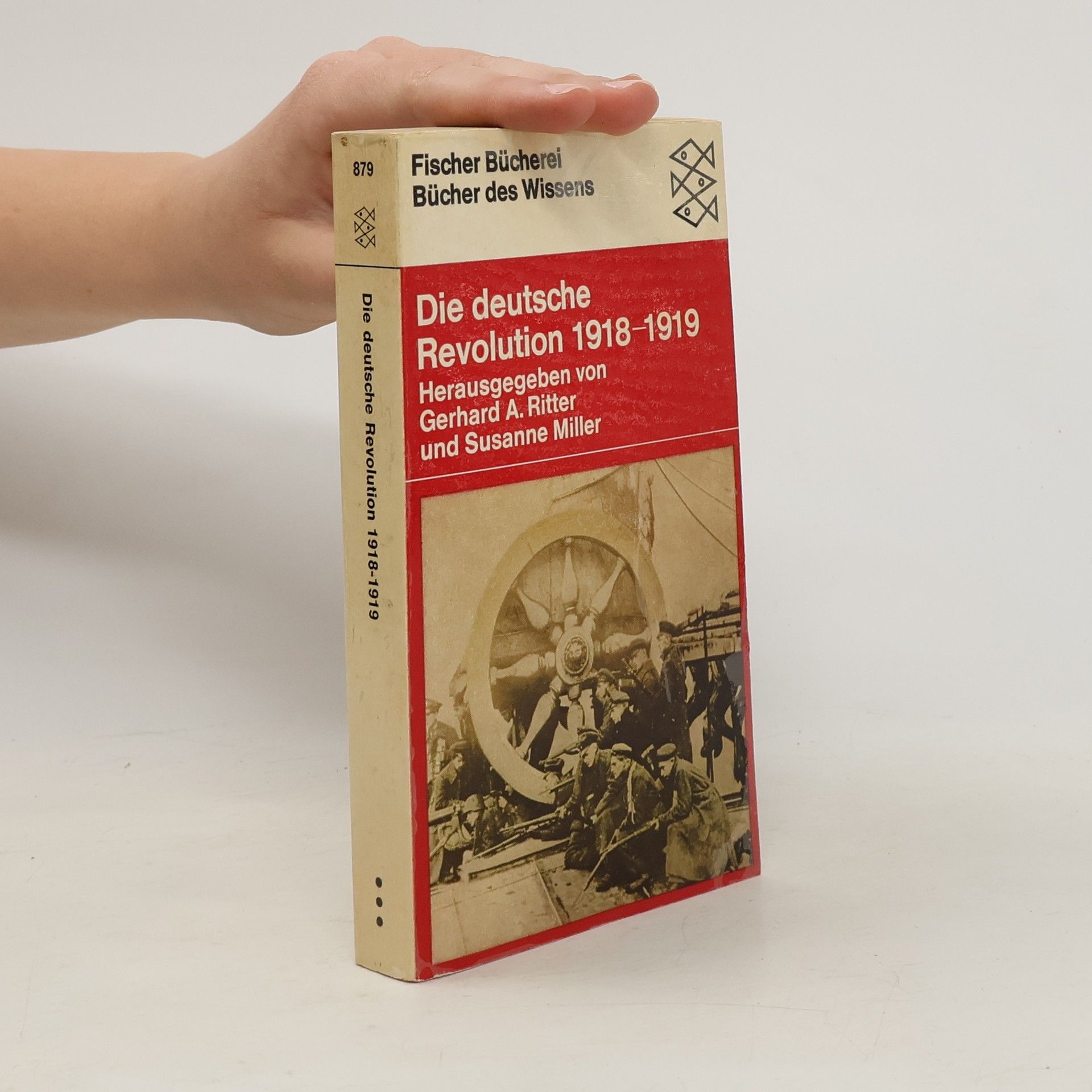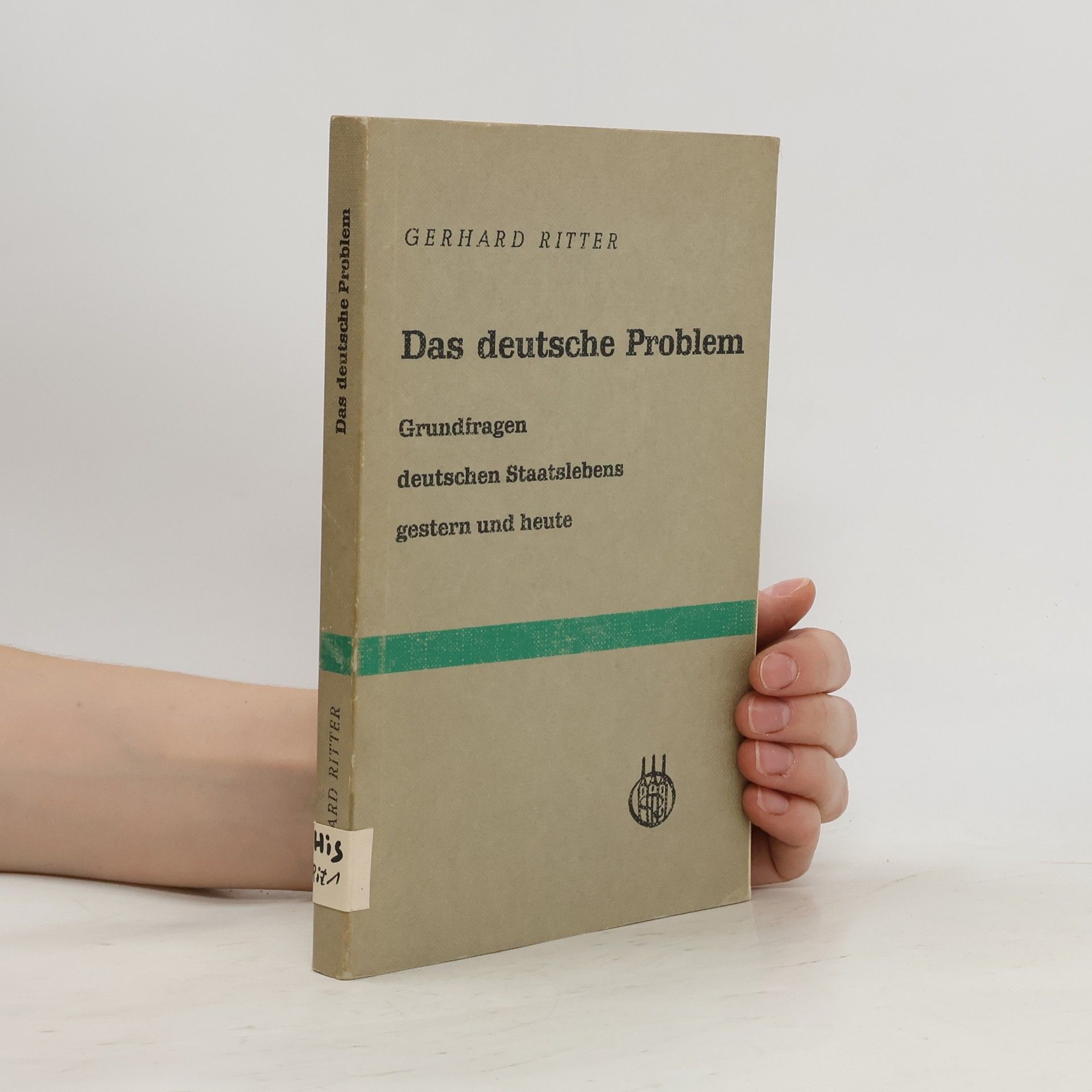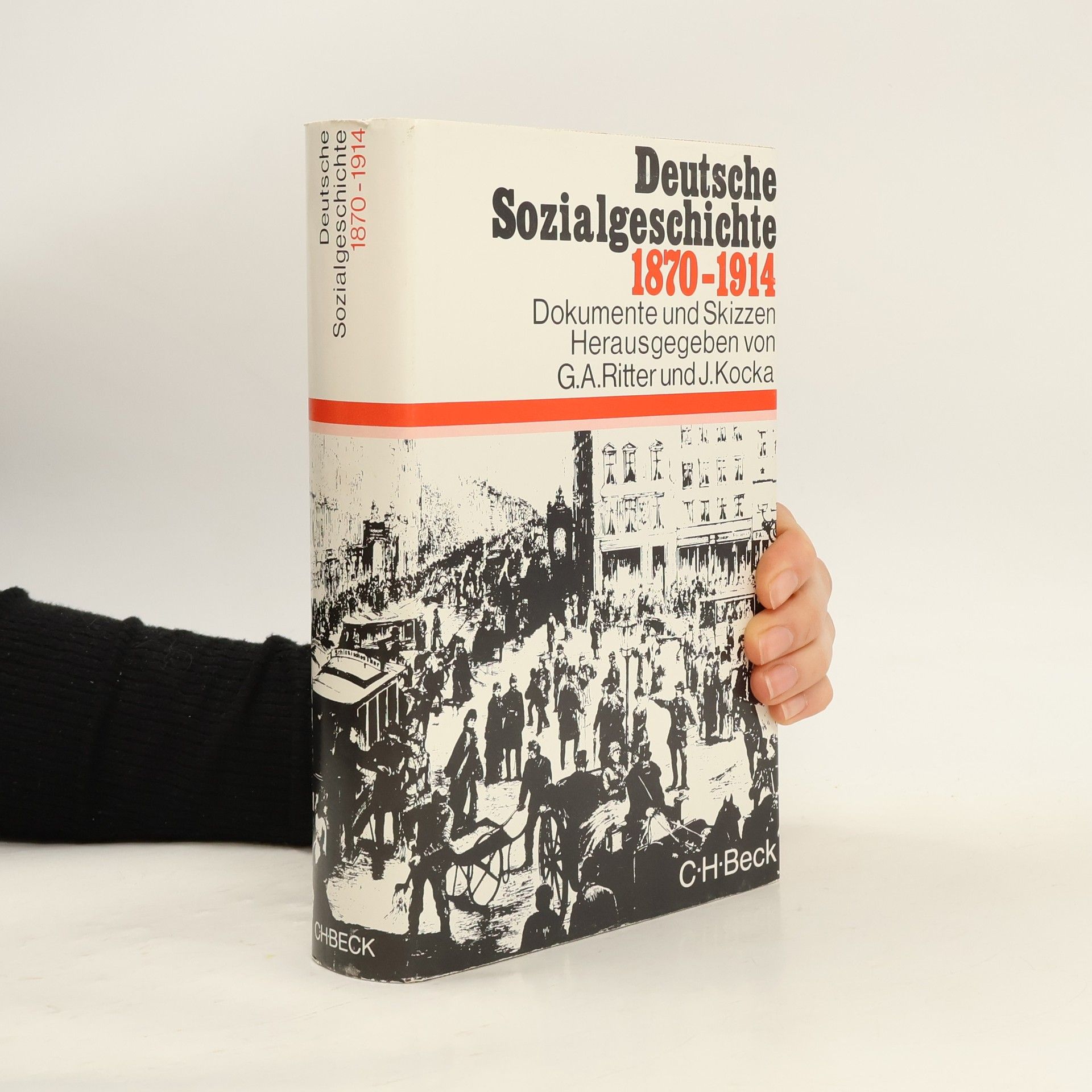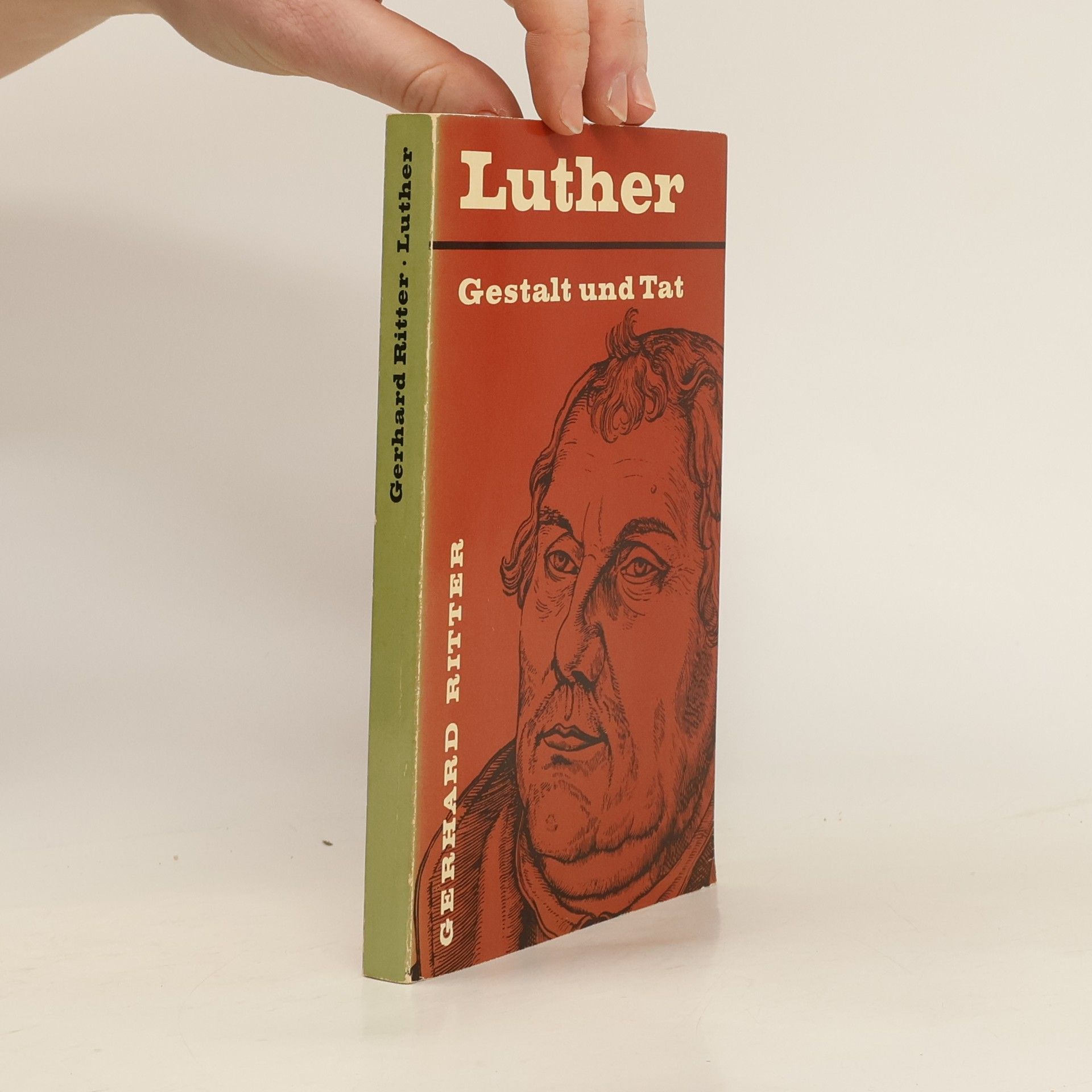Gerhard A. Ritter zeigt, an welche unterschiedlichen Traditionslinien die beiden deutschen Staaten nach Kriegsende anknüpften und wie verschieden die grundlegenden Wandlungsprozesse in Staat, Wirtschaft und Gesellschaft ausfielen. Er lotet das Ausmaß der Amerikanisierung der Bundesrepublik und der Sowjetisierung der DDR aus und zeigt, wie die unterschiedlichen Orientierungsmuster die Schaffung einer inneren Einheit nach 1989 erschwerten.
Gerhard A. Ritter Livres
29 mars 1929 – 20 juin 2015
Gerhard Ritter fut un historien allemand réputé pour ses analyses approfondies de l'histoire allemande. Son travail s'est centré sur la compréhension des moments et des figures charnières qui ont façonné l'identité et la politique allemandes. Ritter a exploré la tension entre l'autorité et la liberté dans la tradition allemande. Son approche a été caractérisée par un accent mis sur les dimensions morales de l'histoire et sur la manière dont les événements passés éclairent le présent. Il demeure une figure significative dans le domaine de l'érudition historique pour son engagement perspicace envers les complexités du passé de l'Allemagne.
